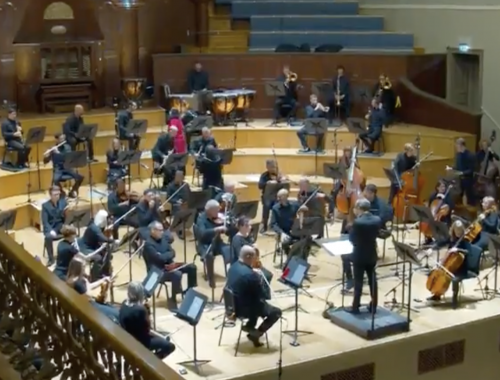Deep Space Homer (or how I learned to stop worrying and Love the Studer)

While sitting down to write this journal/blog, and looking over the materials that had been provided as examples of exemplar work, it dawned on me that I was somewhat expected to begin with my interview process. Well I never had one, instead the position was given to me by default, it turns out no one else had applied to be ‘assistant sound engineer at SARC’. Despite this, Craig Jackson, the head engineer at SARC and for all intensive purposes my pseudo-employer now, mentioned that after looking at my application and my experience he felt that I was more than capable of the job, which was a relief to me considering that I felt somewhat like Homer Simpson when he landed in the space program by default.
However thankfully I had been accepted into the placement position I had been wanting for years. The excitement I felt knowing that I would not only have access to the Sonic Lab but also be given the training in how to use it thrilled me.
Instead of an interview I was given an induction of the main processes and systems that made up the Sonic Lab, and more importantly how those systems work together. I was taught the start-up and shut down procedures, which in previous work in studios had always been some of the most important work in my eyes. Set up and takedown comprises the majority of the musical performances you see and the recording sessions you hear. And to me there’s always something somewhat ritualistic about the procedure that always enticed me. Dr Nick Hobson of the University of Toronto Speaks on the importance of ritual. Stating that humans have two modes of thinking “Instrumental thinking and Ritualistic Thinking – “Instrumental thinking is when we do things rationally and related to goals. Think: I want to go to the gym so I can lose weight, or I’m going to work extra hard on a Saturday to finish a project. Ritualistic thinking, on the other hand, is when we do something that doesn’t make any logical sense, but on some level our brains have evolved to know that it’s still important — or even vitally important.” (1)
While I’m fully aware that the setup and shutdown procedure are instrumental to the running of the space, the repeated routine has really helped me. It was agreed soon that I would help run the desk (called the Studer) during Paul Stapleton’s improvisation class on Mondays and then help Peter Wilson and Yo Tomita in their performance class in the Harty Room on a Tuesday.
Beginning with Paul’s classes on a Monday at first was daunting, I was unsure how to patch most things through the desk and mostly felt I was getting by with luck and gut feelings. Here I can relate to Gibbs reflective model. (2)

I found myself unsure of how to patch mics and other audio through the desk at first, this compounded on the imposter syndrome already heavy on my heart.
However I was able to set everything else up through the monitors supplied in the store. This was a fine way rig the mics as the monitor speakers still filled the room.
This gave me valuable time to better acquaint myself with the desk and it’s various ports and patches. My action plan then became to spend more time with Johnny and Craig and learn more from them. Soon by week 8 I actually had a grasp on the rather complex system that made up the Sonic Arts Research Centre and by week 9 I was using it with ease.
It goes to show that by analysing your situation in any workspace you’re in, you can properly address the issues you’re facing and overcome them.
Peter and Yo’s class was a difference setup since it was based in the Harty Room. There’s no Desk but instead an IPad linked up to the sound system through wifi. Unlike SARC, I quickly picked up what I needed to run the sessions without a hitch. The wireless setup and ease of which I could quickly set up a mic and monitor system was welcome. My one major issue in the first few weeks were the number of students who wanted to play backing tracks off their phone. This was a problem mostly because many of these students had new IPhones, ones without a headphone Jack. However, through application of the Star Technique most of these worries were easily fixed.

We were able to solve the issue by playing these tracks off Yo Tomita’s computer, however I knew this would happen again and took it upon myself to source a dreaded ‘dongle’ as they’re a officially called by Apple, which I guess is better than headphone to lighting cable converter. Thankfully Craig had access to one and lent it to me, which I have kept on my person since with it being such a weirdly helpful tool. Now when students want a backing track it can be easily played without much hassle.
Occasionally I am asked by Craig to cover for Jonny on Thursday when he is away or unwell, with this class being my own year I felt quite nervous that I would embarass myself in front of my peers. And I almost did. In my first week one student un-expectantly had a much more complicated setup than I was prepared for, and to make matters worse for the life of me I couldn’t figure out how to give him what he wanted from the room at the time. I managed to make it work with some jury-rigging and creative use of inputs and panning, but the end result did not sound as good as it could have. Thankfully when I was asked to cover the class again a few weeks later I was much more prepared, and the session went off without an issue in sight. I used all the equipment correctly and managed to patch monitor mixes and reverb and multiple different audio sources both radio and hardwired.
It just goes to show that the best experience you can get is the experience you get on the job, maybe I was Homer Simpson but now I feel like a regular astronaut who’s actually earned their place here.
Bibliography:
(1) https://www.beautiful.ai/blog/beautifulai-presents-rituals-in-the-workplace
(2) University of Cumbria Academic Services & Retention Team (2016) Gibbs’ reflective cycle, Available at: https://my.cumbria.ac.uk/media/MyCumbria/Documents/ReflectiveCycleGibbs.pdf
(3) https://www.rightattitudes.com/2008/07/15/star-technique-answer-interview-questions/
You May Also Like

In at the Deep End: Recording an Orchestra
26 November 2021
Feast vs Famine
26 November 2021
